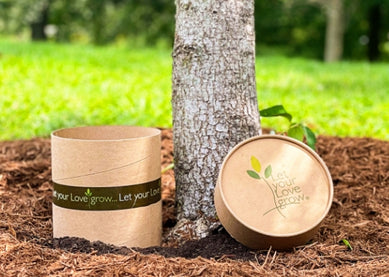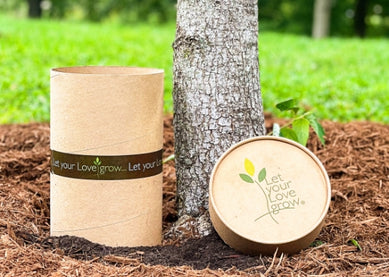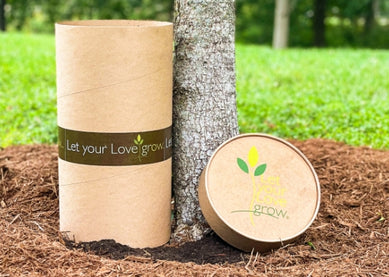Moving Forward After Caregiving Ends
Caregiving is one of the most selfless and transformative roles a person can undertake. For many, it becomes a defining part of life, shaping daily routines, relationships, and priorities.
When this chapter ends, particularly after the loss of a loved one, it can leave a void that feels devastating. The emotional and practical challenges of moving forward may seem insurmountable at times, but this process can also promote healing, growth, and rediscovery.
We have some tips to guide you through this transition, offering strategies for processing emotions, reclaiming time and space, and rebuilding routines. Together, these steps can help you find purpose and fulfillment in this new phase of life while still honoring the person you dedicated your life to caring for.
Finding Your Way Through Grief and Change
The end of caregiving often brings a wave of complex emotions. Grief over the loss of a loved one may intertwine with feelings of relief that their suffering has ended, guilt for that relief, and even a loss of identity. After all, caregiving may have defined your daily life for months or years.
What you don’t want to do is hold all of these emotions inside. Acknowledging and validating the feelings you’re having is crucial for healing healthily. They are a natural response to significant change and should not be shamed or stifled. Seeking support is one of the most important steps you can take to find your way through grief and this huge change.
Counselors and support groups can provide a safe space to process your feelings, share your experiences, and connect with others who understand your journey. Trusted friends and family members can also offer comfort and a fresh perspective on moving forward.
Creating space for reflection is equally important. Allow yourself time to sit with your emotions through journaling, meditation, or quiet moments in nature. All of the above practices can help you adjust to life without the caregiving role and provide clarity about what comes next.
Reclaiming Your Time and Space at Home
Caregiving often involves both an emotional and a physical presence in your home. So much of the person you lost lingers in the home, and that can be shattering. After this chapter ends, reclaiming your environment and schedule can be a strong step toward healing.
Start with practical tasks, such as sorting through caregiving items and those of the person you took care of.
It’s natural to want to keep everything they had after losing a loved one to preserve their memory. But it’s best to only keep prized possessions to avoid clutter. Gifting items to other family members and friends is also a good idea to free up space.
It’s also important to sort through caregiving items, like medications, medical supplies, or equipment. For example, to get rid of old pill bottles, donate, recycle, or repurpose them. Handling these items may feel bittersweet because they helped keep your loved one alive, but it can also symbolize a fresh start.
As you reorganize your physical space, consider the emotional impact as well. You might repurpose a room once dedicated to caregiving into a peaceful retreat, creative studio, or cozy gathering area. Letting go of physical reminders doesn’t mean letting go of your loved one’s memory. It simply creates space for the next chapter.
Reclaiming your time is just as vital. Caregiving often leaves little room for personal routines, so now is the moment to establish ones that nurture you. Start small: a consistent morning ritual, a regular walk, or scheduled time for hobbies can bring stability to your days. Spending time with friends or joining community events can also reintroduce you to the joy of connection.
Reclaiming your time and space at home can help you restore your identity and let go in a positive way.
Rediscovering Yourself and Setting New Goals
Life after caregiving is an opportunity to reconnect with yourself, as your passions, interests, and dreams may have taken a backseat.
Pursuing passions is one of many healthy habits you should form as you grieve. Think back to the hobbies or activities you enjoyed before caregiving became your focus. Perhaps you loved painting, gardening, or writing. Or maybe this is the perfect time to explore something new, like learning a language or joining a fitness class. Engaging in fulfilling activities can provide a sense of purpose and joy.
Reconnecting with people can also be helpful as you move forward. Caregiving can sometimes create a sense of isolation, so take small steps to reengage with your community. Get to know your neighbors, join a local book club, or attend events that interest you to lift your spirits and find belonging.
Set achievable goals, too. It can help you regain a sense of direction. These don’t have to be grand or ambitious; even small milestones, like volunteering, tackling a creative project, or joining a local interest group, can bring structure and meaning to your days.
Conclusion
Transitioning from caregiving to a life without caregiving and your loved one is no small feat. The journey involves processing complex emotions, reclaiming time and space, and rediscovering yourself beyond the caregiving role.
While these steps may be challenging, they are also deeply rewarding. This new phase of life offers the chance to honor your caregiving journey while embracing opportunities for growth and fulfillment.
Through patience, self-compassion, and an openness to new experiences, you can carry your loved one’s memory forward as you create a life that feels whole again.









